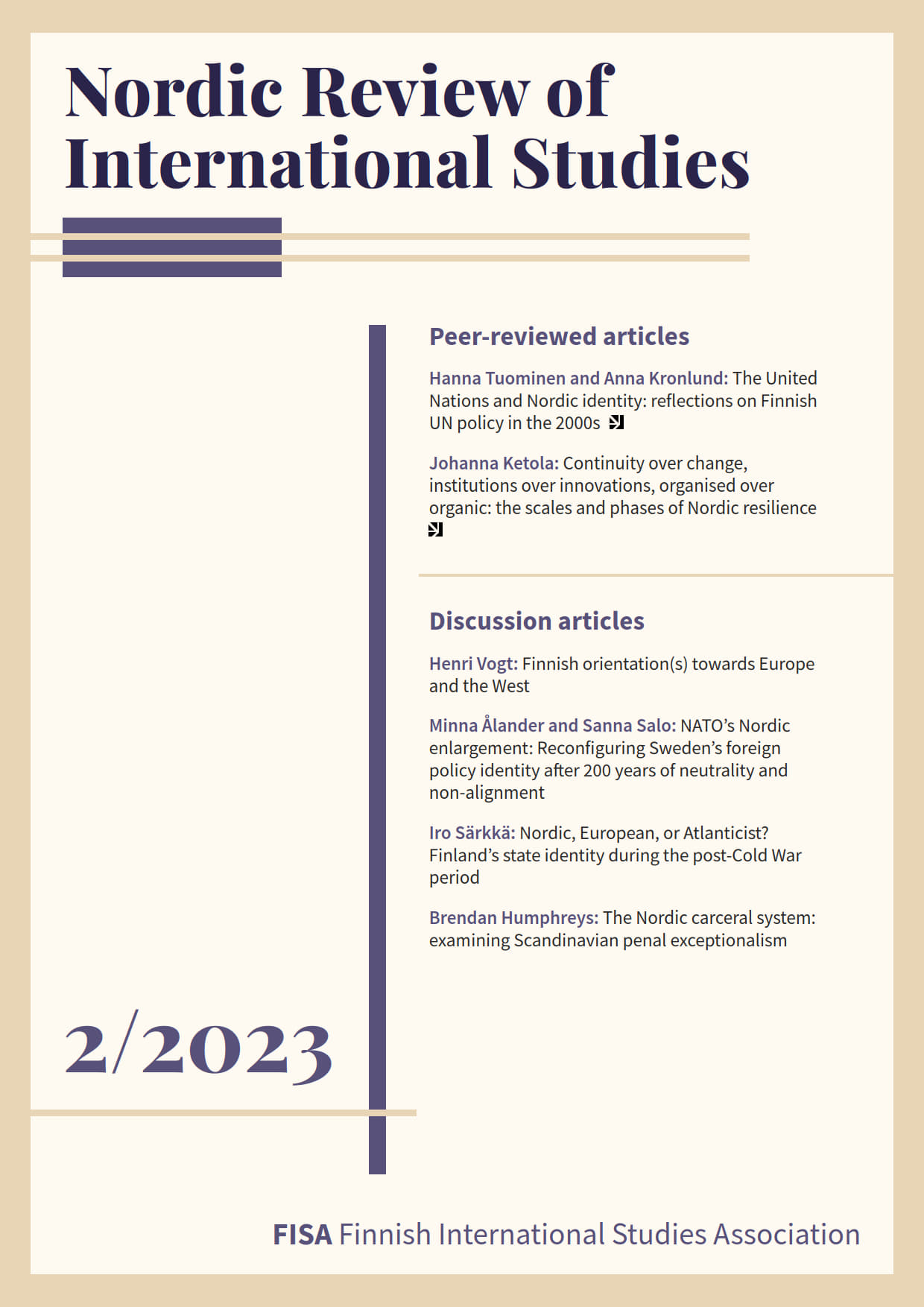NATO’s Nordic enlargement
Reconfiguring Sweden’s foreign policy identity after 200 years of neutrality and non-alignment
Abstrakti
Prompted by Russia’s war of aggression in Ukraine, Sweden and Finland have undergone a paradigm shift in their foreign policies as they decided to abandon the doctrine of military non-alignment and join NATO. In this discussion article, we argue that the policy changes have been accompanied by fundamental shifts in the countries’ identities. This is particularly the case for Sweden, which long perceived itself as a ‘moral superpower’ in both foreign and domestic policy terms. A key transformation brought about by the changes in the security environment has been a reconfiguration of the relationship between Sweden and Finland. We argue that the changes in the two countries’ identities may be long-lasting, affecting the way in which Sweden and Finland perceive their positions among the Nordic countries – and the broader Western alliance.
Tiedostolataukset
Julkaistu
Numero
Osasto
Lisenssi
Copyright (c) 2024 Minna Ålander, Sanna Salo

Tämä työ on lisensoitu Creative Commons Nimeä-EiKaupallinen-EiMuutoksia 4.0 Kansainvälinen Julkinen -lisenssillä.
License Terms
-
Attribution — You must give appropriate credit, provide a link to the license, and indicate if changes were made. You may do so in any reasonable manner, but not in any way that suggests the licensor endorses you or your use.
-
NonCommercial — You may not use the material for commercial purposes.
-
NoDerivatives — If you remix, transform, or build upon the material, you may not distribute the modified material.





